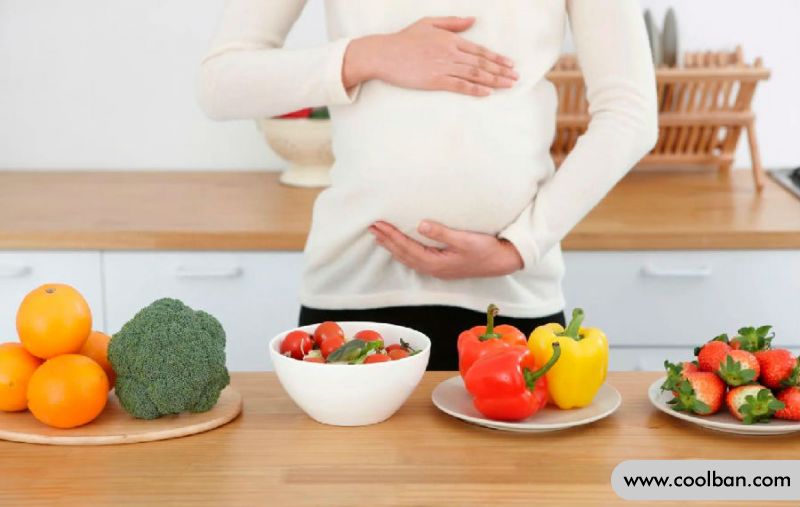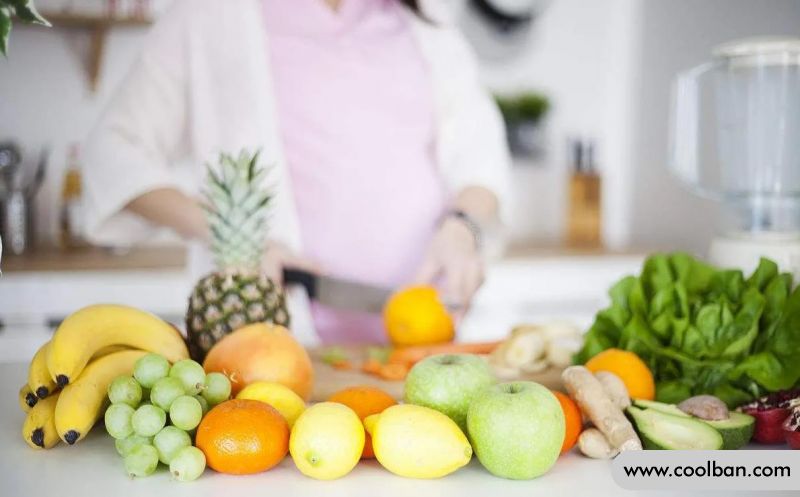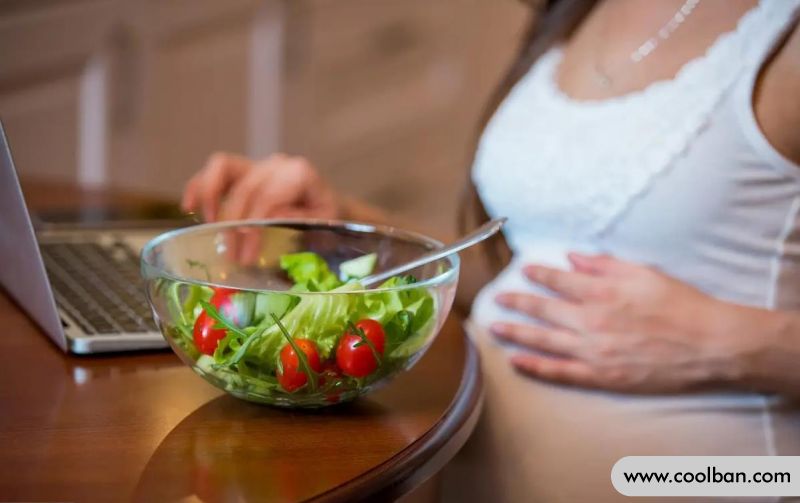Nutrition and dietary taboos needed in early pregnancy
2022-04-08
The first trimester is the main period of fetal cell differentiation and the formation of human organs, and it is also the period during which the mother adapts to physiological changes. Nutritional guidelines and dietary precautions in the first trimester have become a top priority for expecting mothers. Recommendations for early pregnancy: eat a balanced diet, choose a variety of natural and healthy foods, eat as little processed foods as possible, and pay attention to light and easily digestible foods. So let's take a look at what nutrients mothers need in early pregnancy, and what precautions should be taken in terms of diet in early pregnancy? Are there any dietary taboos in early pregnancy? Let's take a look.

Precautions for diet in early pregnancy
In the first trimester, pregnant women need to pay great attention to their diet, and it is best to consume more nutrients that are conducive to embryonic development, such as high-quality protein, fatty acids, energy, vitamins and minerals. Spicy and spicy foods, fried foods and some foods that are easy to cause anger are best eaten less or not.
In the first trimester Note 1: Protein intake, this period is the period when protein is relatively stored in the body, of which about 170g remains in the fetus and about 375g remains in the mother. This requires that the dietary protein supply of pregnant women is increased by 25g than that of non-pregnant women, and more animal foods and soy foods should be consumed.
In the first trimester Note 2: Essential fatty acids, this period is the peak period of fetal brain cell growth, it is necessary to provide enough essential fatty acids such as arachidonic acid to meet the needs of brain development , Eating more fish can promote the supply of DHA.
Early pregnancy Note 3: Intake of calcium and iron, more than half of the calcium in the fetus is stored in the third trimester. Pregnant women should consume 1500 mg of calcium per day and supplement with an appropriate amount of vitamin D. The fetal liver stores iron at a rate of 5 mg per day during this period until it reaches 300-400 mg of iron at birth. Pregnant women should consume 28 mg of iron per day, and should consume more of the hemoglobin-type iron from animal foods.
In the first trimester Note 4: Pregnant women should regularly consume milk, fish and soy products. It is best to fry the small fish or eat it with the bones, and drink the pork ribs soup. Small shrimp skin is rich in calcium, and a little can be added to the soup; the liver and blood of animals have high iron content and high utilization rate, so they should be used frequently.
First trimester Precautions 5: Vitamins. Adequate water-soluble vitamins, especially thiamine, are needed in the third trimester. If it is lacking, it is easy to cause vomiting, fatigue, and uterine atony during labor, resulting in delayed labor.
In the first trimester Note 6: The supply of heat energy is the same as that in the second trimester, so there is no need to add too much. Especially in the last month of the third trimester, the intake of saturated fat and carbohydrates should be appropriately limited to prevent the fetus from being too large and affecting the smooth delivery.

Nutrition needed by pregnant women
Nutrient Required 1 : Carbohydrates. In the staple foods such as coarse grains, rice flour, flour, noodles, etc., about 400 grams per day, the three-meal distribution ratio is 3:4:3.
Nutrient Required 2: Protein. Meat, poultry, eggs (animal protein) and soy products (vegetable protein), etc., about 150 grams of animal protein and about 50 grams of vegetable protein per day.
Nutrient Required 3: Vitamins. Liver, kidney, egg yolk, fruits, vegetables of animals.
Nutrient Required 4: Folic Acid. Green vegetables, animal livers, kidneys, oranges, bananas, etc., need to consume 400-600 micrograms of folic acid per day.
Nutrients Required 5: Calcium Supplement. Milk, milk powder, yogurt, beans and soy products, green vegetables, dried shrimp, seaweed, kelp, etc. Calcium supplementation is not recommended for the first 4 months.
Nutrient Required 6: Iron. Animal offal, lean meat, seaweed, kelp, etc. Avoid drinking milk and tea together, which will affect the absorption of iron. It is best for expectant mothers not to drink tea, especially strong tea.
Nutrient Required 7: Zinc. Meat, eggs, milk, oysters and other seafood.
Nutrient Required 8: Dietary Fiber. Whole grains, fiber-rich vegetables, and appropriate fruits.
Nutrients Required 9: Drinking water. The best drink is water, drink 6-8 glasses of water every day, and the amount of water in one breath should not exceed 100 grams; drinking water after getting up in the morning is a good habit.

Dietary taboos for pregnant women
Taboo 1: A high-fat diet increases the risk of cancer.
Taboo 2: A high-sugar diet is not conducive to eugenics.
Taboo 3: It is not advisable to blindly supplement calcium.
Taboo 4: Excessive intake of salty food can easily lead to pregnancy-induced hypertension.
Taboo 5: Indiscriminate consumption of warm tonics is harmful.
Taboo 6: Beware of mildew food poisoning.
Taboo 7: Drinking alcohol affects fetal development and postpartum intelligence.
Taboo 8: Drinking tea has adverse effects on the baby.
Taboo 9: Supporting refined rice noodles is prone to nutritional deficiencies.
Contraindication 10: Caffeine has adverse effects on infants.

The diet in the first trimester should be digestible and rich in vitamins, minerals and trace elements. Because the growth and development of the baby in the first trimester is relatively slow, and the demand for nutrition is not very large, it is necessary to ensure the intake of vitamins and trace elements at this time. In the first trimester, pregnancy reaction is prone to occur because of the elevated concentration of chorionic gonadotropin in the body. If you eat too much or are nutritious and not easy to digest, you may exacerbate the feeling of vomiting. Therefore, it is recommended to eat less and more meals, eat more foods that are easy to digest and absorb, and eat more fruits and vegetables rich in vitamin C. The diet should not be too simple, not partial or picky, and reasonably match dietary nutrients.

Precautions for diet in early pregnancy
In the first trimester, pregnant women need to pay great attention to their diet, and it is best to consume more nutrients that are conducive to embryonic development, such as high-quality protein, fatty acids, energy, vitamins and minerals. Spicy and spicy foods, fried foods and some foods that are easy to cause anger are best eaten less or not.
In the first trimester Note 1: Protein intake, this period is the period when protein is relatively stored in the body, of which about 170g remains in the fetus and about 375g remains in the mother. This requires that the dietary protein supply of pregnant women is increased by 25g than that of non-pregnant women, and more animal foods and soy foods should be consumed.
In the first trimester Note 2: Essential fatty acids, this period is the peak period of fetal brain cell growth, it is necessary to provide enough essential fatty acids such as arachidonic acid to meet the needs of brain development , Eating more fish can promote the supply of DHA.
Early pregnancy Note 3: Intake of calcium and iron, more than half of the calcium in the fetus is stored in the third trimester. Pregnant women should consume 1500 mg of calcium per day and supplement with an appropriate amount of vitamin D. The fetal liver stores iron at a rate of 5 mg per day during this period until it reaches 300-400 mg of iron at birth. Pregnant women should consume 28 mg of iron per day, and should consume more of the hemoglobin-type iron from animal foods.
In the first trimester Note 4: Pregnant women should regularly consume milk, fish and soy products. It is best to fry the small fish or eat it with the bones, and drink the pork ribs soup. Small shrimp skin is rich in calcium, and a little can be added to the soup; the liver and blood of animals have high iron content and high utilization rate, so they should be used frequently.
First trimester Precautions 5: Vitamins. Adequate water-soluble vitamins, especially thiamine, are needed in the third trimester. If it is lacking, it is easy to cause vomiting, fatigue, and uterine atony during labor, resulting in delayed labor.
In the first trimester Note 6: The supply of heat energy is the same as that in the second trimester, so there is no need to add too much. Especially in the last month of the third trimester, the intake of saturated fat and carbohydrates should be appropriately limited to prevent the fetus from being too large and affecting the smooth delivery.

Nutrition needed by pregnant women
Nutrient Required 1 : Carbohydrates. In the staple foods such as coarse grains, rice flour, flour, noodles, etc., about 400 grams per day, the three-meal distribution ratio is 3:4:3.
Nutrient Required 2: Protein. Meat, poultry, eggs (animal protein) and soy products (vegetable protein), etc., about 150 grams of animal protein and about 50 grams of vegetable protein per day.
Nutrient Required 3: Vitamins. Liver, kidney, egg yolk, fruits, vegetables of animals.
Nutrient Required 4: Folic Acid. Green vegetables, animal livers, kidneys, oranges, bananas, etc., need to consume 400-600 micrograms of folic acid per day.
Nutrients Required 5: Calcium Supplement. Milk, milk powder, yogurt, beans and soy products, green vegetables, dried shrimp, seaweed, kelp, etc. Calcium supplementation is not recommended for the first 4 months.
Nutrient Required 6: Iron. Animal offal, lean meat, seaweed, kelp, etc. Avoid drinking milk and tea together, which will affect the absorption of iron. It is best for expectant mothers not to drink tea, especially strong tea.
Nutrient Required 7: Zinc. Meat, eggs, milk, oysters and other seafood.
Nutrient Required 8: Dietary Fiber. Whole grains, fiber-rich vegetables, and appropriate fruits.
Nutrients Required 9: Drinking water. The best drink is water, drink 6-8 glasses of water every day, and the amount of water in one breath should not exceed 100 grams; drinking water after getting up in the morning is a good habit.

Dietary taboos for pregnant women
Taboo 1: A high-fat diet increases the risk of cancer.
Taboo 2: A high-sugar diet is not conducive to eugenics.
Taboo 3: It is not advisable to blindly supplement calcium.
Taboo 4: Excessive intake of salty food can easily lead to pregnancy-induced hypertension.
Taboo 5: Indiscriminate consumption of warm tonics is harmful.
Taboo 6: Beware of mildew food poisoning.
Taboo 7: Drinking alcohol affects fetal development and postpartum intelligence.
Taboo 8: Drinking tea has adverse effects on the baby.
Taboo 9: Supporting refined rice noodles is prone to nutritional deficiencies.
Contraindication 10: Caffeine has adverse effects on infants.

The diet in the first trimester should be digestible and rich in vitamins, minerals and trace elements. Because the growth and development of the baby in the first trimester is relatively slow, and the demand for nutrition is not very large, it is necessary to ensure the intake of vitamins and trace elements at this time. In the first trimester, pregnancy reaction is prone to occur because of the elevated concentration of chorionic gonadotropin in the body. If you eat too much or are nutritious and not easy to digest, you may exacerbate the feeling of vomiting. Therefore, it is recommended to eat less and more meals, eat more foods that are easy to digest and absorb, and eat more fruits and vegetables rich in vitamin C. The diet should not be too simple, not partial or picky, and reasonably match dietary nutrients.
